A toddler from regional South Australia has been hospitalised with an invasive case of Meningococcal Disease, the fourth case in the state in the past three months.
Multiple people have had contact with the child, with at least 12 already having received an antibiotic treatment from doctors, SA Health said.
The disease can only be spread by close or lengthy contact.
This case is the third incident of a child being found with invasive meningococcal disease reported in South Australia this year, compared to the five cases recorded in the state at the same time in 2016.
A 10-month-old Adelaide boy also was found to have the disease in January, as well as a 5-year-old regional South Australia girl and a 3-year-old toddler in December last year.
Twenty seven cases of the disease were identified in South Australia alone during 2016, five of which — including the most recent case — were found to be of the serogroup W-135 strain.
Serogroup W-135 has the potential to escalate into a large-scale epidemic, according to the World Health Organisation.
The Huffington Post Australia contacted SA Health for a response regarding the possibility of an outbreak.
The SA Health Chief Medical Officer Professor, Paddy Phillips, played down the idea of an epidemic in a statement provided to the HuffPost Australia, saying the W strain of the meningococcal disease has been less common in the state but authorities are continuing to monitor it.
“Here in South Australia we are seeing far more Meningococcal B cases than the W strain and that’s why we are supporting a nation-leading trial into Meningococcal B and looking at ways to improve herd immunity,” the statement read.
“While we haven’t seen large numbers of the W strain in SA over the past few years, we will continue to monitor both the cases we get here in South Australia as well as the effectiveness of other states’ programs.”
SOURCE: The Huffington Post
